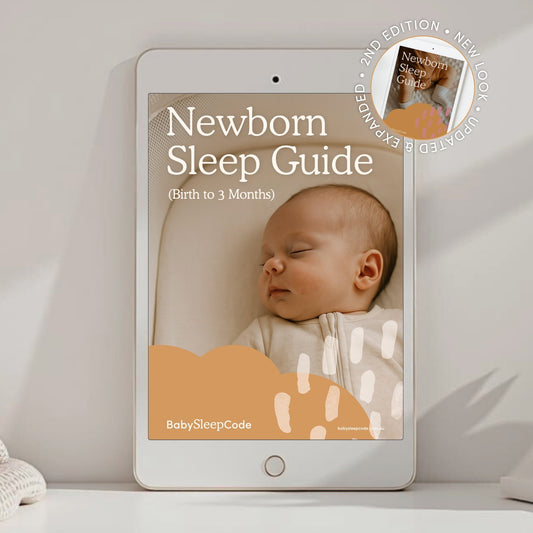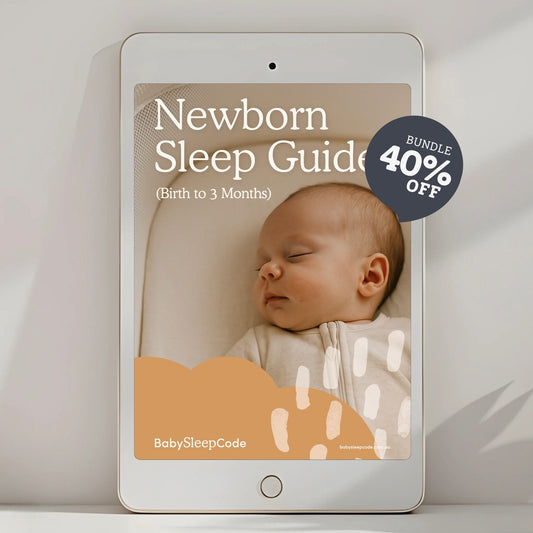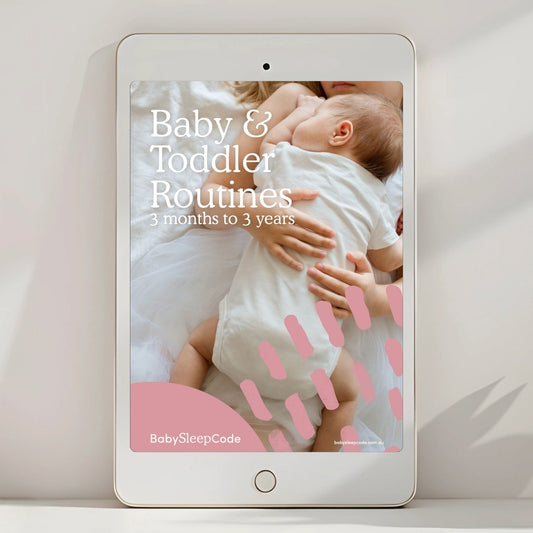Forget how your baby is sleeping, how are YOU sleeping?
nsomnia and sleep disruptions are incredibly common for new mums. Right after birth, there’s a major drop in progesterone levels, which stay low until your period returns. Since progesterone helps ease anxiety and promotes sleep quality, this hormonal shift can make falling and staying asleep harder.
At the same time, oxytocin—the "bonding hormone"—floods your system, activating your protective instincts. While this is amazing for mother-baby bonding, it can also heighten nighttime anxiety, making it difficult to switch off.
And even when your baby starts sleeping through, your own circadian rhythm may still wake you up at the times they used to feed.
So here are some science-backed strategies to improve your own sleep quality:
1. Get outside for daily sunlight exposure.
Sunlight triggers serotonin release, which boosts mood and is a precursor to melatonin—the hormone that helps you sleep at night. Aim for at least 20 minutes of natural light exposure each morning to help regulate your body clock.
2. Keep lights dim and avoid blue light at night.
Blue light from screens signals to your brain that it's daytime, suppressing melatonin and making it harder to fall asleep. Avoid phones and tablets at least an hour before bed. If you wake up in the night, resist the urge to scroll, try listening to a calming podcast or audiobook instead. Also, block artificial lights in your room, including bright baby monitor screens (sound on, screen off if possible)
3. Train your brain to associate your bed with sleep.
Your bed should be for sleep (or sex!) only. Avoid working, eating, or watching TV in bed. If you're tossing and turning, get up for a few minutes, stretch, or do a quiet activity like reading in dim lighting before trying again.
4. Write down worries and to-do lists before bed.
If your mind races at night, keep a notepad beside your bed. Jotting things down can help you offload mental clutter, reducing stress and making it easier to switch off.
5. Avoid caffeine after midday.
Caffeine has a half-life of about 5-6 hours, meaning even your lunchtime coffee can still be in your system by bedtime, making it harder to fall asleep. Caffeine lingering in your system can also disrupt sleep quality, so while that afternoon coffee might feel necessary to push through exhaustion, it can leave you even more tired the next day.
6. Try progressive muscle relaxation or guided meditation.
Instead of counting sheep, focus on relaxing your body. Start at your toes and work your way up, tensing and then relaxing each muscle group. You can also try a guided sleep meditation, which has been shown to improve sleep onset and quality.
7. Regulate your body temperature.
Your core body temperature needs to drop slightly to initiate sleep. Keep your bedroom cool (around 18°C) and use breathable bedding. If night sweats are waking you up, opt for moisture-wicking sleepwear and layers you can easily adjust.
8. Manage the "nighttime scaries."
It’s common for mums to feel wide awake after a nighttime wake-up, stressing about how they’ll survive the next day. But here’s something reassuring: your body’s circadian rhythm plays a big role in how tired you feel. In the middle of the night, when your body expects to be asleep, sleep deprivation feels unbearable. But as the sun rises, cortisol and other daytime hormones kick in to help you function. You might not feel amazing, but you will feel better than you do at 3 AM.
If you’re lying awake worrying, try a simple mantra: “If tonight is hard, we’ll make tomorrow easy.” That means giving yourself permission to have a lazy PJ day, use screens for a bit of sanity, cancel plans (unless they’re something that recharges you), and make that morning coffee extra strong.
9. If you can’t sleep, just rest.
Lying awake feeling frustrated only increases stress hormones like cortisol. Instead, remind yourself that rest—just lying down with your eyes closed—is still beneficial for your body. Take the pressure off needing to sleep instantly, and you might just drift off more easily.
__
I hope these tips help. I know how hard it is to function when you're running on broken sleep. It’s also important to recognize that insomnia can be both a symptom and a trigger for postpartum depression. Studies show that mums who sleep poorly are more than three times as likely to experience depression than those with good sleep quality. If your sleep struggles are affecting other areas of your life, reach out for help. A good place to start is your GP. For more mental health support, visit www.panda.org.au.
And if your little one is also struggling with sleep, check out our 1:1 Sleep Support packages or our self-paced downloadable sleep guides as we'd love to help you get sleep on track for the whole family.





